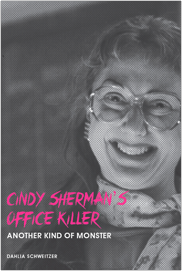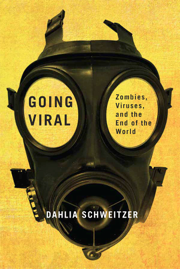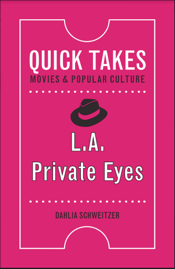
About Dahlia
DAHLIA SCHWEITZER is a pop culture critic, writer, and professor. Described by Vogue as “sexy, rebellious, and cool,” Schweitzer writes about film, television, music, gender, identity, and everything in between. She studied at Wesleyan University, lived and worked in New York City and Berlin, and completed her MA and PhD at the Art Center College of Design and UCLA. She is currently chair of the Film and Media department at the Fashion Institute of Technology in New York City.
In addition to her books, Dahlia has essays in publications including Cinema Journal, Journal of Popular Film and Television, Hyperallergic, Jump Cut, Quarterly Review of Film and Video, and The Journal of Popular Culture. She has also released several albums of electronic music, including Plastique and Original Pickup.

Professor
As a professor of film and media studies, Dahlia exposes her students to a variety of theoretical approaches and cinematic techniques, asking them to approach both with analytical inquisitiveness. Her aim is to pass her own curiosity on to her students, encouraging them to think across their classes and experiences to create intellectual connections between course materials and the world in which they live. She strives to remind her students that the loudest voice is not necessarily correct, and in so doing, helps them find their own.

Media Critic
Declared “one of the world’s leading analysts of popular culture” by renowned author Toby Miller, Dahlia writes about film, television, music, gender, identity, and everything in between. Her work can be found across mainstream, academic, and emergent channels in both long and short form. Repeatedly drawn to popular culture, Dahlia loves to analyze and unpack cultural artifacts in order to explore how they reflect social and historical issues, as well as looking at how they reinforce or interrogate common cultural assumptions.

Author
Dahlia has written numerous books exploring aspects of film and television. Regardless of the topic—serial killers, private detectives, or even zombies—all of her writing engages directly with questions of self versus other, private versus public space, examining depictions of gender, identity, and race. She traces how these depictions evolve and examines what they mean about our changing world. In her latest project, Dahlia explores the ways haunted homes have become a venue for dramatizing anxieties about family, gender, race, and economic collapse.
Blog
When the Classroom Becomes a Minefield
Yesterday, my friend Dr. Lauren Donovan Ginsberg, tweeted that sometimes she wonders about “the vast, silent, unknown would-be networks of vulnerable students and scholars in academia who (a) have a harasser in common but who (b) don’t know that because harassers tend to choose & isolate victims serially and because we don’t talk about it.” This hit me like a punch in the gut because she is right. As educators we don’t talk about it because we are afraid it will make us seem ineffectual,...
Do the Writers of ‘The L Word’ Know Actual Lesbians?
Inspired by the sudden influx of queer films, characters, and directors in 1992, film scholar and general badass B. Ruby Rich coined the term "New Queer Cinema." From Paul Verhoeven's Basic Instinct to Derek Jarman's Edward II, from Tom Kalin's Swoon to Gregg Araki's The Living End, it was hip to be queer! Prior to this rush of queerness, gay and lesbian representation was limited, to say the least. For much of American film history, gay and lesbian actors and directors were often closeted,...
Why There Is Nothing Funny About Don’t Look Up
Spoilers within. The greatest tragedy in Don’t Look Up isn’t the end of the world. It’s the tremendous waste of the star power within it. As Nick Allen writes, “If Don’t Look Up deserves any award, it’s for the work of its casting director, Francine Maisler.” A star-studded cast, devoted to a cause. There is no denying that the film is a veritable orgy of star-powered excess. It feels like a We Are the World spectacular, partly because of the big name stars dropping by...




